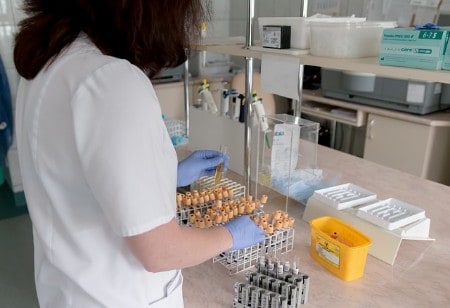For years employers have warned that the UK faces a skills shortage in many STEM (Science, Technology, Engineering and Mathematics) roles. For example, EngineeringUK recently announced that the UK needs 1.8 million new engineers and technicians by 2025.
At the NEC, STEM subjects are amongst our most popular GCSE and A level courses. We recently conducted a survey to understand more about our 2017 cohort of A level STEM students. We wanted to know more about what motivated them to study and their future ambitions.
Our headline results
Subject choice
- 41% Biology
- 24% Chemistry
- 19% Physics
- 16% Mathematics
Gender divide
- 52% female
- 48% male
With women still under-represented in STEM careers, it’s interesting and encouraging to see that our STEM distance learners have an almost equal gender divide – with slightly more female students than male. However, the balance shifts when it comes to individual subject areas:
- Biology – 68.4% female
- Chemistry – 53.5% female
- Mathematics – 34.9% female
- Physics – 30% female
National campaigns such as WISE (Women in Science, Tech and Engineering) and Geek Girls are seeking to open up opportunities for women to enter STEM careers. It seems the NEC STEM student demographic has a more equal gender balance than the wider UK picture, where currently:
- Women make up 42% of UK science professionals
- 11% of the engineering workforce in the UK is female
- 20% of A level physics students are girls
- Women make up 17% of UK ICT professionals
- Women make up 23% of UK STEM professionals
Age
One of the great advantages of distance learning is that it’s accessible and achievable for students of all ages. Our survey revealed that our STEM students range from 15 to 79 years old. However, the vast majority are either in their 20s (52.9%) or aged 15-19 (23.6%) – suggesting plenty of future STEM careers could be in the pipeline.
STEM aspirations
We asked our STEM students about their future fields of interest. The most popular responses were Medicine and related careers (43.8%) and Engineering (12.3%). Overall the scope of fields of interest were diverse and included: Law, Science, Meteorology, Architecture and Computer Science.
“The goal is to blitz these A levels so I can apply to Biomedical Engineering degrees with various universities.” — NEC A level Biology, Mathematics and Physics student
*Data sources: www.wes.org.uk/content/wesstatistics and www.wisecampaign.org.uk/resources/2017/10/women-in-stem-workforce-2017.


Add a new comment
Current comments: 0